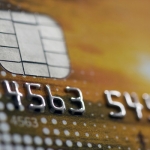Global Payments, a credit card processing firm, announced that as many as 1.5 million credit card numbers were stolen due to a security breach last month. Issues like this seem more and more common place in the news and it is important to know what to do if you suspect that your credit card has been hacked.
You receive an alert that your credit card number (or any other piece of personal information) has been stolen, or you observe a bill or debt for something you don't recall purchasing. What do you do? The First and most important step is to be aware of your accounts and personal information. Review your credit card statements carefully each month and look for anything you don't recall purchasing. Often, banks will monitor activity on your credit card, especially for known issues or odd discrepancies (like out of country purchases) and either alert you or simply deactivate your card immediately to prevent further fraud. Even though this is an inconvenience, this extra level of awareness can save you a lot of time and hassle.
If you believe you are a victim of credit card or identity theft, you'll want to take action quickly.
Place a Fraud Alert
Placing a fraud alert will help prevent new accounts from being opened in your name. Calling one of the three nationwide consumer credit reporting agencies will generate the fraud alert. The agency you chose will then contact the other two.
TransUnion: 1-800-680-7289; www.transunion.com
Equifax: 1-800-525-6285; www.equifax.com
Experian: 1-888-EXPERIAN (397-3742); www.experian.com
With a fraud alert on your account, you are eligible to receive free copies of your credit report - request that only the last four digits of your social security number be printed on this report. Review these reports thoroughly and check for any discrepancies that are suspicious.
Close Suspicious and Tampered Accounts
Contact your back or credit card provider to close the credit card account. In some cases, additional credit card accounts can be created in a case of identity theft - you will want to close those as well. You should call and then follow up in writing with copies of supporting documents displaying your claim. You'll want to request that any fraudulent debts generated be disputed. Use certified mail and request a return receipt, and document all of your correspondences.
File a Police Report
If your credit card was lost or stolen, you'll want to file a report with your local police (or the police in the area it was stolen). Keep the copy of the report for your records just in case.
File a Complaint with the FTC
The Federal Trade Commission helps law enforcement officials track down cases involving identity theft. Providing your information can help put a stop to thieves. File the complaint at www.ftc.gov/iditheft or call them at 1-877-IDTHEFT.
Document Everything
Keeping track of all correspondence, reports, and credit information is extremely crucial while communicating with credit card companies. Never send original documents, only copies.
Remember, credit card companies are on your side in the fight against cyber thieves and are always trying to provide measure to prevent identity theft. Only use vendors you trust, and keep an eye on your statements to catch issues as early as possible!
![]()


Comments